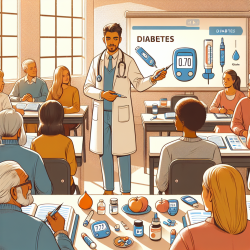In the rapidly evolving landscape of public health, school practitioners face unique challenges in information sharing, particularly during health emergencies like the COVID-19 pandemic. The recent research article, "Information Sharing in the School Setting During a Public Health Emergency," offers crucial insights for improving communication and maintaining student privacy. Here’s how you can leverage these findings to enhance your practice.
Understanding Privacy Laws: HIPAA and FERPA
The Family Educational Rights and Privacy Act (FERPA) and the Health Insurance Portability and Accountability Act (HIPAA) set the foundation for managing student information. Generally, FERPA governs educational records, while HIPAA applies to health records. However, during public health emergencies, exceptions and waivers can alter these guidelines.
Key Takeaways:
- FERPA allows the sharing of personally identifiable information (PII) without parental consent during health emergencies.
- HIPAA waivers permit sharing patient information for treatment purposes and public health activities.
Implementing Effective Communication Strategies
Effective communication is vital during a public health crisis. School nurses and administrators must be well-versed in their district’s communication policies and collaborate with public information officers (PIOs).
Action Steps:
- Develop a comprehensive communication plan as part of your crisis preparedness strategy.
- Partner with school administrators and PIOs to ensure consistent messaging.
- Stay updated with local health department guidelines and resources.
Real-World Scenarios and Responses
The research article outlines several scenarios school nurses may encounter during a pandemic and provides appropriate responses. Here are a few examples:
Scenario 1: Positive COVID-19 Case
A parent reports their child has tested positive for COVID-19. The school nurse can notify public health officials and school administration without parental consent under the "health or safety emergency" exception.
Scenario 2: Media Inquiry
A reporter asks if there are COVID-19 cases at the school. The school nurse should direct the inquiry to the district’s PIO, as media do not qualify as "appropriate parties" under FERPA’s health or safety emergency exception.
Scenario 3: Immunocompromised Student
If a student with a compromised immune system is in the same classroom as a COVID-19 positive case, the school nurse should work with the administration to inform staff and parents without disclosing PII.
Conclusion
By understanding and applying the guidelines from the research article, school practitioners can navigate the complexities of information sharing during public health emergencies. Staying informed and prepared is key to protecting the health and safety of students and the school community.To read the original research paper, please follow this link:
Information Sharing in the School Setting During a Public Health Emergency.










